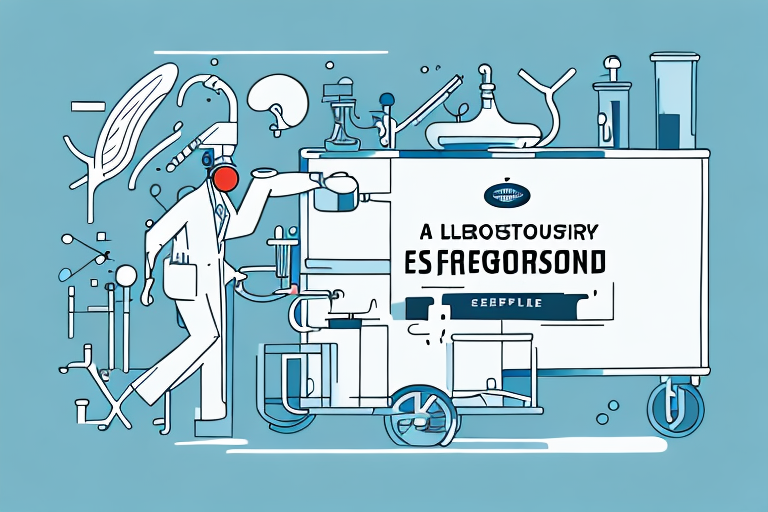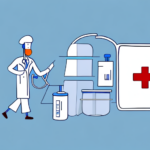Importance of Medical Couriers in Healthcare
Medical couriers are integral to the healthcare system, ensuring the seamless transportation of sensitive medical supplies, laboratory specimens, and critical equipment between hospitals, laboratories, clinics, and other healthcare facilities. Reliable courier services are especially vital during emergencies, where timely and accurate delivery can significantly impact patient outcomes.
According to the Centers for Disease Control and Prevention (CDC), efficient specimen transport is crucial for rapid diagnosis and treatment, thereby enhancing the quality of patient care. Any delays or mishandling in transportation can lead to misdiagnoses or delayed treatments, underscoring the necessity for dependable medical courier services.
Operations of Medical Courier Services
Transporting Sensitive Materials Safely
Medical couriers receive specialized training to handle a variety of sensitive materials, including blood samples, organ donations, and pharmaceutical products. They utilize specialized vehicles equipped with temperature control systems and secure storage to maintain the integrity of the transported items. Adhering to strict protocols for labeling, packing, and temperature management is essential to prevent contamination or degradation of samples.
Compliance with regulations set by the Department of Transportation (DOT) and the CDC ensures that couriers meet the highest standards of safety and security. Regular training and certification programs keep couriers updated on the latest safety protocols and regulatory requirements.
Types of Medical Courier Services
Medical courier services offer various options to meet the diverse needs of healthcare providers:
- Same-Day Express: Ideal for urgent and time-sensitive deliveries, ensuring rapid transit of critical materials.
- Route-Based Services: Suitable for routine, recurring deliveries between fixed locations, optimizing efficiency and reliability.
- On-Demand Services: Flexible solutions for ad hoc requests, accommodating unexpected or urgent transportation needs.
- Specialized Services: Including temperature-controlled transportation for items requiring specific temperature ranges and secure transport for confidential materials.
Day-to-Day Responsibilities
Medical couriers manage a range of daily tasks, such as collecting laboratory samples, delivering medications to pharmacies, transporting medical equipment, and ensuring timely and secure deliveries. They also handle route planning, customer service interactions, and meticulous paperwork management to maintain accurate records of all transactions.
Adhering to safety and sanitation protocols, couriers ensure that all medical items are transported hygienically. This includes proper labeling, packaging, wearing personal protective equipment, and understanding the specific handling and storage requirements of each item.
Becoming a Medical Courier
Training and Certification Requirements
Prospective medical couriers must meet several prerequisites, including a high school diploma, a valid driver’s license, and a clean driving record. A thorough criminal background check is also typically required to ensure the safety and trustworthiness of the courier.
Certification through recognized organizations such as the National Healthcareer Association (NHA) or American Medical Technologists (AMT) may be required in some states. Gaining experience in healthcare settings, such as hospitals or medical facilities, enhances a courier’s understanding of the critical nature of timely and accurate deliveries.
Strong communication and customer service skills are essential, as couriers frequently interact with healthcare professionals and may handle sensitive patient information. The ability to work independently and manage time effectively ensures that deliveries are made promptly and reliably.
Benefits of Medical Courier Services
For Healthcare Providers
Outsourcing the transportation of sensitive materials to professional medical courier services allows healthcare providers to focus on patient care rather than logistical challenges. This can lead to significant savings in time, money, and resources, enhancing overall operational efficiency.
Medical courier services also enhance the speed and reliability of medical operations, contributing to better patient outcomes and higher levels of patient satisfaction. The use of specialized transportation solutions ensures that medical specimens and equipment are delivered securely and intact.
For Patient Outcomes
Timely and secure delivery of medical supplies and specimens is critical for accurate diagnoses and effective treatments. Medical couriers minimize the risk of errors and delays, ensuring that medical procedures proceed without interruption. This contributes to improved patient outcomes and overall quality of care.
In emergency situations, medical couriers provide essential support by rapidly transporting critical supplies and equipment to healthcare facilities, particularly in rural or remote areas where access to medical resources may be limited. This capability helps bridge the gap between healthcare providers and patients, ensuring timely medical interventions.
Selecting the Right Medical Courier Service
When choosing a medical courier service, consider the following factors to ensure reliability and efficiency:
- Reliability: Opt for services with a proven track record of timely and secure deliveries.
- Compliance: Ensure the service is HIPAA-compliant and adheres to all relevant state and federal regulations.
- Geographical Coverage: Select a service that can cater to all required locations, whether local or nationwide.
- Specialized Capabilities: Choose services that offer specialized transportation options, such as temperature-controlled or secure deliveries, based on your specific needs.
- Customer Service: Excellent customer support and real-time tracking features enhance transparency and accountability.
Evaluating these factors helps healthcare providers select a medical courier service that aligns with their operational requirements and ensures the safe and efficient transport of medical materials.
Future Trends in Medical Courier Services
The medical courier industry is evolving with advancements in technology and changes in healthcare needs. Key trends shaping the future include:
- Autonomous Vehicles: The integration of self-driving vehicles has the potential to increase the speed and efficiency of medical deliveries while reducing costs and minimizing human error.
- Drone Deliveries: Drones offer rapid delivery options for reaching remote or hard-to-access areas, especially during natural disasters or public health emergencies. However, regulatory and safety challenges must be addressed for widespread adoption.
- Blockchain Technology: Enhancing the security and transparency of medical deliveries by providing immutable records of transactions and ensuring data integrity.
- Artificial Intelligence (AI): AI-driven route optimization and predictive analytics can improve delivery efficiency and anticipate logistical challenges.
The COVID-19 pandemic has further underscored the critical role of medical courier services, highlighting the need for robust and adaptable transportation solutions to support global healthcare systems. As the industry continues to innovate, medical couriers will remain pivotal in ensuring the health and safety of populations worldwide.
In conclusion, medical couriers are essential to the healthcare ecosystem, facilitating the safe and efficient movement of critical medical materials. By leveraging advanced technologies and adhering to stringent standards, medical courier services will continue to enhance the quality of healthcare delivery and patient care.




















